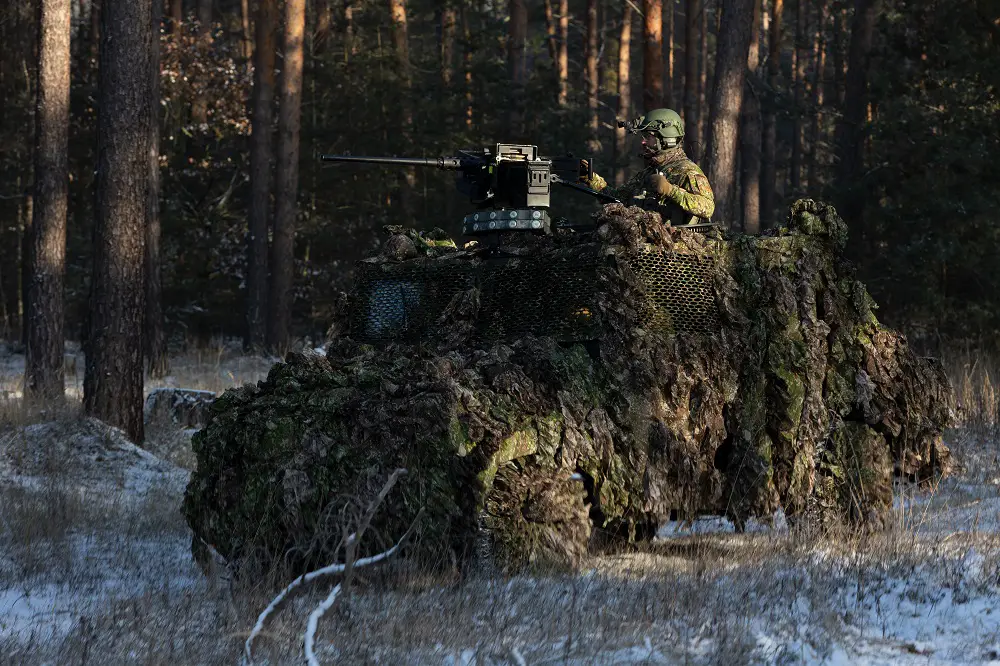The Dutch Ministry of Defence (MoD) has officially confirmed that Germany’s Rheinmetall will fulfill its air assault vehicle requirement with the Caracal. Dutch Secretary of State for Armament, Christophe van der Maat, announced the procurement plan to the Dutch Parliament on June 15. The Netherlands aims to acquire 504 vehicles, while Germany plans to obtain over 1,000 from Rheinmetall. This collaborative effort between the Bundeswehr and the Dutch armed forces aims to modernize the vehicle fleets of the Division Schnell Kräfte and the 11th Luchtmobile Brigade, streamlining the vehicle fleets of both countries’ airborne forces. The Caracal, the designated airborne platform, will be identical for Germany and the Netherlands, allowing for various weapon configurations such as heavy machine guns and the SPIKE anti-tank system. Additionally, the vehicles can be equipped with modular ballistic protection.

The Dutch MoD stated that the first vehicles will be available for testing by 2024. Rheinmetall, in partnership with ACS Armoured Car Systems and Mercedes-Benz, outperformed Krauss Maffei-Wegmann and Defenture’s bid with the GRF platform. Technical requirements, delivery time, and price were the decisive factors in selecting Rheinmetall Land Systems (RLS) as the supplier, according to the Dutch MoD’s press release. The Dutch Caracal procurement is estimated to cost EUR 302.5 million, with deliveries set to begin in 2025 at a rate of 100 vehicles per year. The budget proposal for the German portion of the project is yet to be discussed and is scheduled for deliberation on July 5. As of now, neither the members of the German Budget Committee nor the Defence Committee have received the relevant document. The expectation is that the German armed forces will receive 200 units per year.

The Caracal airborne vehicle family, built on the new G-Class 464 series chassis, offers exceptional performance and versatility. Powered by a six-cylinder 183 kW (249 hp) Euro 3 diesel engine, this vehicle can reach speeds of up to 140 km/h while generating an impressive 600 Nm of torque. Despite its power, the Caracal remains compact, measuring just 4.35 m long, 1.81 m wide, and 1.85 m high, making it one of the most compact platforms in its class. With its 4×4 all-wheel drive, the Caracal boasts excellent off-road capabilities, enabling it to tackle gradients of up to 60% and side slopes of up to 30%. It can overcome obstacles of up to 33 cm and cross trenches up to 50 cm wide with ease. To ensure adequate protection, the Caracal can be equipped with modular elements that allow it to achieve Level 1 protection according to STANAG 4569 standards for ballistic and mine protection. These modular protection elements are strategically placed in the doors and under the vehicle floor, enhancing its defensive capabilities.

The collaboration between Mercedes-Benz, ACS, and Rheinmetall is instrumental in the development and production of the Caracal. Mercedes-Benz manufactures the chassis in Graz, Austria, while ACS contributes the chassis and superstructure from Augsburg. Rheinmetall, as the general contractor, takes responsibility for the final assembly, ensuring the delivery of vehicles in the desired configurations. Additionally, Rheinmetall undertakes the development of armament kits, vehicle qualification, and provides comprehensive logistical support. With its expertise and commitment, Rheinmetall offers full life-cycle support for the Caracal over a period of more than 20 years. In summary, the Caracal airborne vehicle family stands out as a compact, powerful, and versatile platform that combines excellent off-road capabilities with modular protection elements. With future variants planned and the support of established defense contractors, the Caracal is poised to serve a wide range of operational requirements efficiently.













